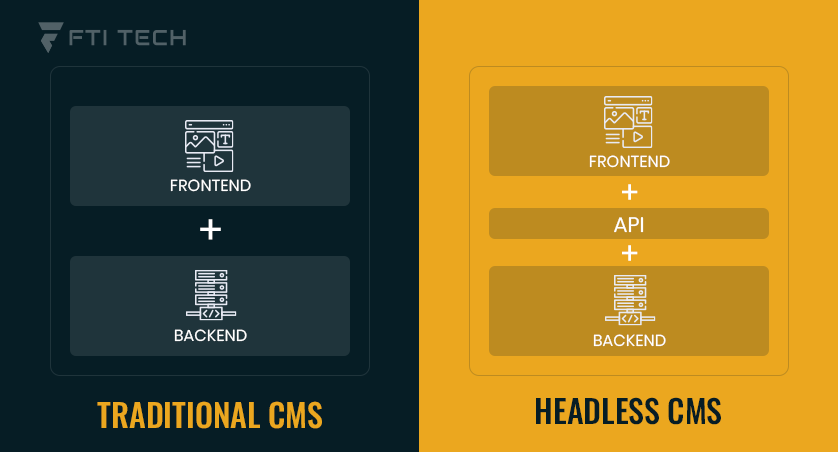Nearshore vs. Offshore: Which is the Best Outsourcing Model for Your Business?
Organizations must carefully select their approach and outsourcing vendors because software development costs show steady growth. The primary approaches that matter in this situation are Nearshore and Offshore Outsourcing.
Nearshore outsourcing services are preferred by organizations primarily because of their geographic proximity. Whereas Offshore outsourcing is a popular choice for businesses with restricted funding .
So, which one is the right choice for your business?
This article provides complete information to help you decide between a nearshore vs offshore approach. Each outsourcing model requires a detailed understanding of its related pros and cons.
What Is Nearshore Outsourcing?
Nearshore outsourcing refers to hiring a service provider in geographical region closer to your location. It is a practice where you hire development companies operating from neighboring countries. For example, working with a Canadian development service provider represents nearshore outsourcing if your company resides in the USA.
Nearshore software development offers several benefits over conventional methods like,
- Lower control issues
- Improved communication
- Faster response time
Now that you know what is nearshore outsourcing, let’s discuss its advantages in detail.
Advantages of Nearshore Outsourcing
Here are the key advantages of nearshore outsourcing,
- Cost Efficiency- Hiring a software development company or developer from a nearby country can be more affordable than hiring from your country.
- Same Time Zones- As these development agencies are near your location, they lie within the same time zones, making the collaborations much more effortless. For example, the distance between New York and Puerto Rico is minimal, facilitating smoother interactions.
- Cultural Advantage- The working styles of a nearshore vendor are similar to yours, but with cultural similarities. This can help you avoid conflicts during development and ensure better releases.
- Coding Standards- Nearshore software development will help you with coding standards maintained in your location. Since they are located close by, most nearshore developers use the same coding standard, ensuring better compliance and higher-quality development.
- Communication Benefits- Most nearshore vendors offer talents well-versed in the native languages, which leads to better communication. It also helps in improving collaborations.
- Faster Turnaround Time- With reduced conflicts, effective collaborations and communications, projects can move faster.
Disadvantages of Nearshore Outsourcing
While nearshore outsourcing does offer several advantages, there are disadvantages that you must consider before choosing it,
- Higher Costs- Nearshore outsourcing is more affordable than onshore development, but offshore outsourcing provides even greater cost savings.
- Lack of Talent- Access to a large talent pool is lacking as most nearshore vendors offer limited options. So if you need professionals for a programming language that developers do not extensively use in your location, hiring one from a nearshore vendor will also be tricky.
- Quality Issues- This disadvantage is related only to specific nearshore countries. If a nearshore vendor does not maintain the code quality required for your project, it can impact the user experience.
- Developing Industry- Nearshoring markets may lack the standards and industry-specific expertise to deliver solutions.
What is Offshore Outsourcing?
Offshore outsourcing is hiring a candidate from a foreign country, often to benefit from lower costs and access to specialized skills. Popularly known as the “remote working model”, it can include outsourcing tasks such as designing, development, DevOps, software testing, and maintenance.
Enterprises, small businesses, and startups choose to outsource to a vendor in a foreign country due to,
- Lower development costs
- Accessibility to a broader talent pool
- Cultural diversity
- Better productivity
- Specialized skill advantage
Many offshore vendors offer a low-cost solution that is far more cost-effective. Plus, you can integrate advanced technologies with access to a specialized talent pool. This is why 66% of organizations outsource at least one department to offshore companies.
Advantages of Offshore Outsourcing:
Here are the advantages of offshore outsourcing that you need to know,
- Low Cost- The cost of hiring is significantly less than the nearshoring strategy. For example, hiring a software developer in the US costs more than in India due to India’s lower cost of living.
- Flexibility- Offshoring is able to provide flexibility in the addition or deletion of developers when necessary. That is, if your project demands more developers at any stage of the software development life cycle, you can include them.
- Specialization- You have the option of selecting offshore vendors based on specialization needs. Say, if one vendor in a particular country is leading in terms of AI development, recruiting developers from it may be beneficial to your company.
- Collaborative Advantage- You can enhance the collaborations between in-house and dedicated teams from vendors. This includes the advantage of in-house employees trained on the tools for practical collaborative tools.
- Code Quality- A primary reason for higher code quality is the experience of offshore developers in working for different clients.
Disadvantages of Offshore Outsourcing
Here are the disadvantages of offshore outsourcing you need to consider,
- Reduced Project Control- Offshore developers are not in the same time zone and can be located in far away countries, leading to a lack of project control.
- Project Focus- Due to several projects simultaneously, offshore developers may not focus on your project.
- Cost of Training- You will have to invest in the training of in-house teams for collaborative tools.
What are the Benefits of Outsourcing Software Development?
Outsourcing software development can have several advantages.
Business Development Opportunity
Companies can focus on their core business and have experts handle the technical functions by outsourcing. This can assist a company in making new opportunities and building core business models and functions.
Risk Mitigation
Outsourcing allows you to try before you buy without making a big commitment. This makes you less vulnerable to overexposure. You can outsource a minimum viable product (MVP) first, test it, and lower the exposure risk of going full-fledged at an early phase.
Cost Savings
One of the primary reasons companies outsource software development is to reduce costs. Outsourcing is the best method of saving on software development. It saves you money on hiring in-house developers, managers, and QAs. You do not need to spend on training, insurance, or bonuses.
Scaling On-Demand
Scalability requires on-demand resources, and outsourcing helps achieve that. Outsourcing enables you to scale on-demand resources to fulfill the scaling requirements through the software lifecycle.
Also Read: How to Find the Right Developer for Your Web Development Project
How to Choose an Outsourcing Development Company?
Collaboration with an outsourcing development company requires multiple aspects for consideration. To build an efficient and scalable site, a well-defined website development process helps avoid confusion and keep the project moving in the right direction.
Here are some tips to follow when choosing the right outsourcing development company.
- Evaluate their past projects and check how vendors overcome technical challenges.
- Check for service level agreements and how outsourcing service providers follow them.
- Understand the software development methodologies used by outsourcing vendors.
- Check the tech stack that these software development outsourcing vendors use.
- Analyze their innovative capabilities and check the code quality of their existing projects.
- Check all the security measures they employ and compliance with GDPR, HIPAA, and other standards.
What is the Difference Between Nearshore Vs Offshore Outsourcing?
Nearshore software development is an approach where a company sends its work to neighboring countries. The offshore approach is when you outsource to a country distant from your location. However there are multitude of underlying distinctions that exist between nearshore vs offshore outsourcing such as,
| Nearshore Outsourcing | Offshore Outsourcing | |
|---|---|---|
| Cost Effectiveness | Lower than onshore but higher than offshore | Most cost-effective option |
| Quality | Medium to high | High |
| Risk Management | Higher risk than offshore outsourcing | Low risk than a nearshore approach |
| Security | Higher security due to shared data protection laws | Lower security due to different data regulations |
| Collabaration | Better due to the same time zone | Issues due to different time zones |
Now that you know the difference between nearshore vs offshore outsourcing, it’s time to choose the most suitable option.
Nearshore vs Offshore: What to Choose for your Business?
Choosing between nearshore and offshore outsourcing depends on specific needs. Here is when to choose between nearshore vs offshore,
Choose nearshore outsourcing when,
- Your project scope is limited.
- You need native language speaking developers.
- You need to comply with local laws
- Your app needs real-time collabs
Choose offshore outsourcing when,
- You need access to specialized skills.
- You are tight on budget.
- Your operations need 24/7 tech support.
- You need advanced integrations like AI.
Conclusion
The benefits which your company obtains from outsourcing include cost optimization and flexibility, scalability, and data security features. Both nearshore and offshore outsourcing provide unique advantages depending on your business needs.
To make the right choice, you must check the vendor portfolios, technical expertise, and compliance mechanisms before selecting one.



